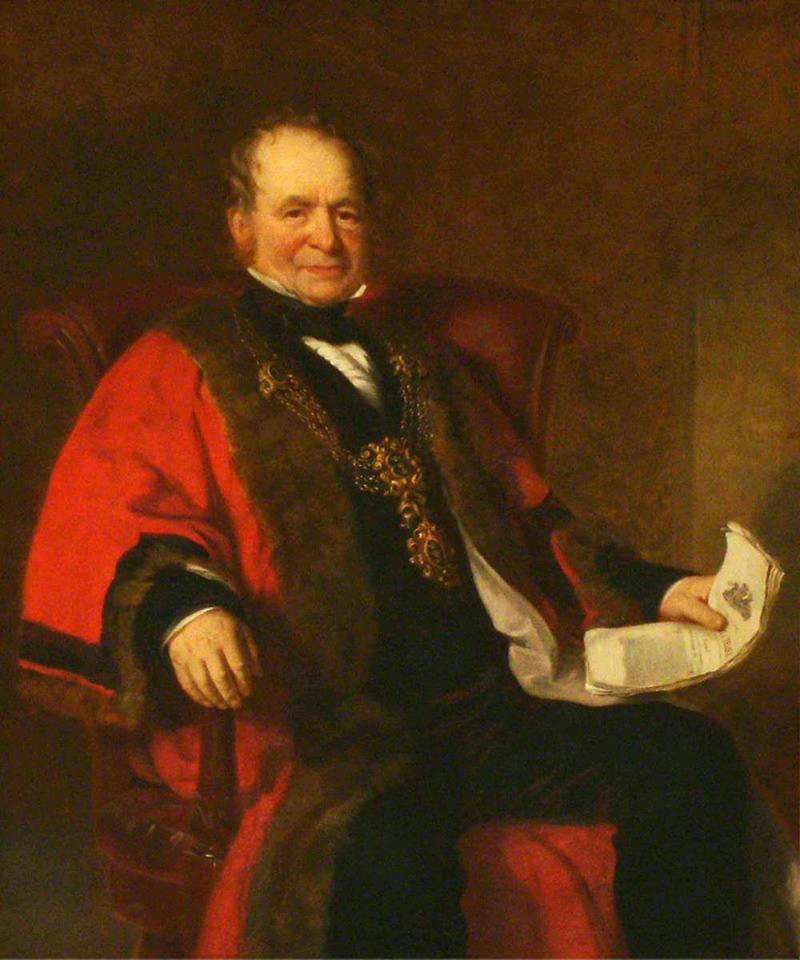Thomas Thompson (1784-1865). The Dick Whittington of Hull.

Early life
One of the most outspoken and benevolent characters of the first half of 19th century Hull was Thomas Thompson. Born in Long Haughton, near Alnwick to poor parents, Thomas was a farm labourer with no formal education. In 1797, aged only 13, he decided to seek his fortune in Hull where his maternal great uncle, Mr Thomas Nesbitt, had a cheese, bacon and salt merchants shop in High Street. After his uncle’s death, the business was taken over by the manager, a Mr Marshall who encouraged Thomas to learn the business.
Marriage
Thomas eventually married the owner’s daughter, Ann Elizabeth Jarvis, in Holy Trinity in 1809. They initially lived down Humber Dock Street and had ten children, only four of which survived him. One of his daughters, Ann, married Mr George Von Dohren, a merchant from Hamburg. Sadly she died in 1863 aged 53.
First steps in business
With the encouragement of his father in law, Thomas decided to branch out on his own. After a somewhat shaky start, began importing fruit from Hamburg. He later expanded into importing hides from Russia and India. By 1820 he had become a successful merchant, and ship owner, trading all around the globe.
Civic responsibility

Despite his lack of formal education, Thomas became an alderman and JP of the town. He was one of the earliest members of the newly reformed Corporation. He was twice elected mayor, once in 1841 and again in 1857. For many years, he was the Austrian Vice consul for the port of Hull.
He was described as a hard-working man with the interests of Hull always at heart. Always aware of his lack of education, he was a plain speaking man. He was often rebuked for his bluntness and egotistical manner.
Whiting, in Portraits of Public Men, his slyly satirical caricatures of Hull Victorian notables said this of Thompson,
‘Yet like all self-made men, our Alderman is too self-willed Put eleven gentlemen on Committee with him, and he will quietly coax over, or over-ride the whole eleven and be in his own person at once the chairman, vice-chairman and the committee.’
Social conscience
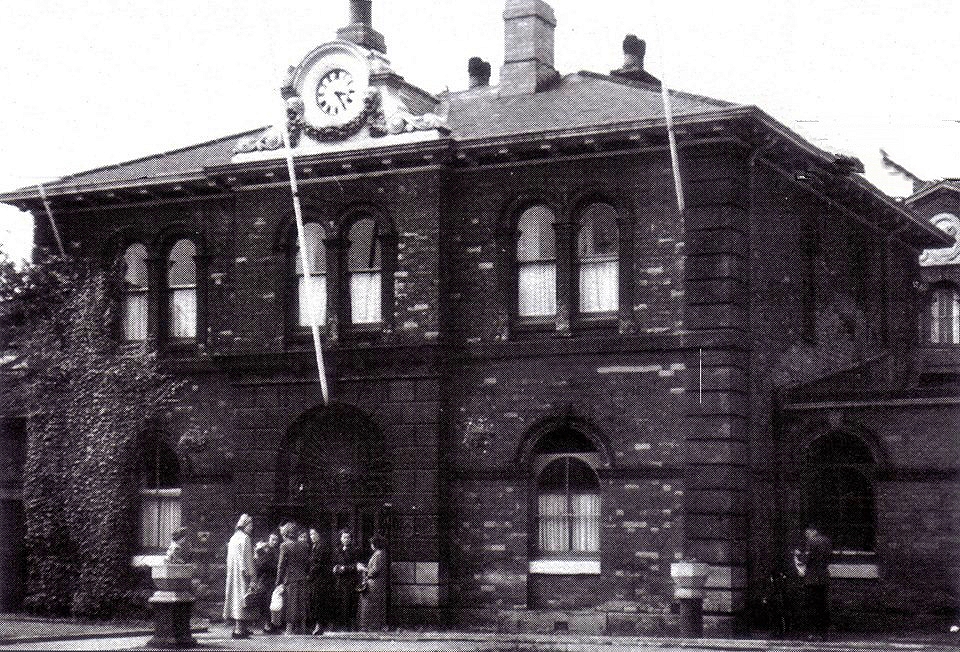
Whatever his faults, he cared passionately about the poor and working class people of Hull. He was noted for his generosity and gave money and coals for the poor. Thomas was also instrumental in the building of the new workhouse on Anlaby Road. He was instrumental in the demolition of the old insanitary one located in Whitefriargate.
He was also very active in his support for the new waterworks at Stoneferry, He laid laid the foundation stone there in 1844. Thompson also insisted that baths for the poor be incorporated using the surplus heat from the boilers for hot water. William Warden was supported by Thompson in his endeavours to erect the Waterworks at Springhead.
Home life and his death
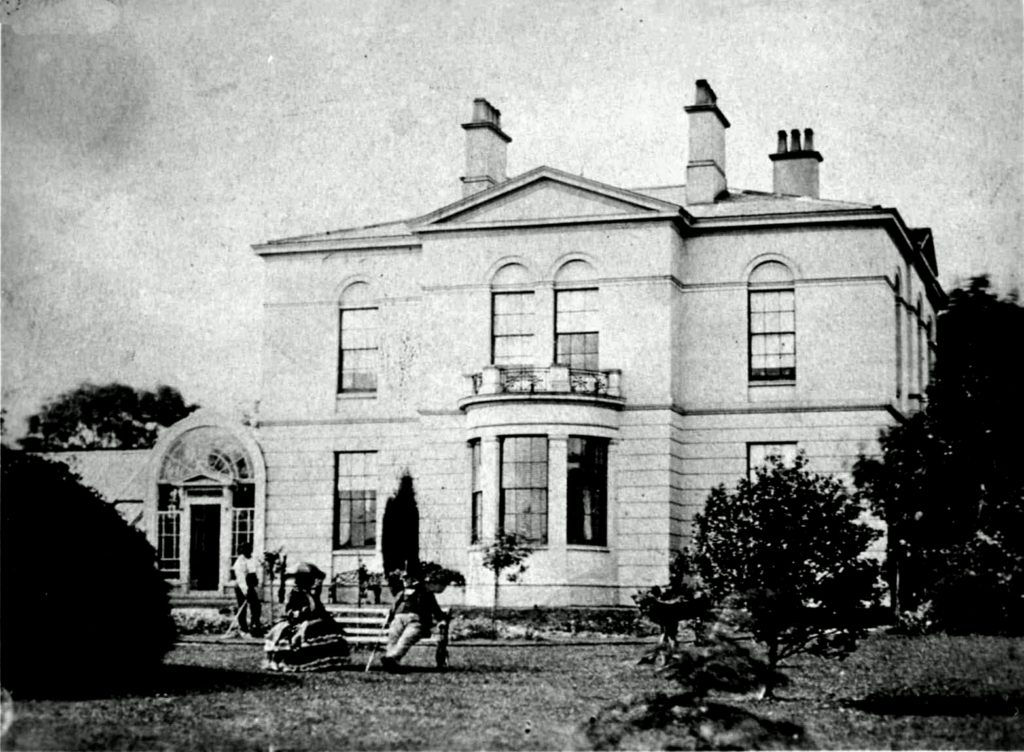
From the 1860’s until the time of his death he and his family lived at Cliff House, near the foreshore in Hessle.
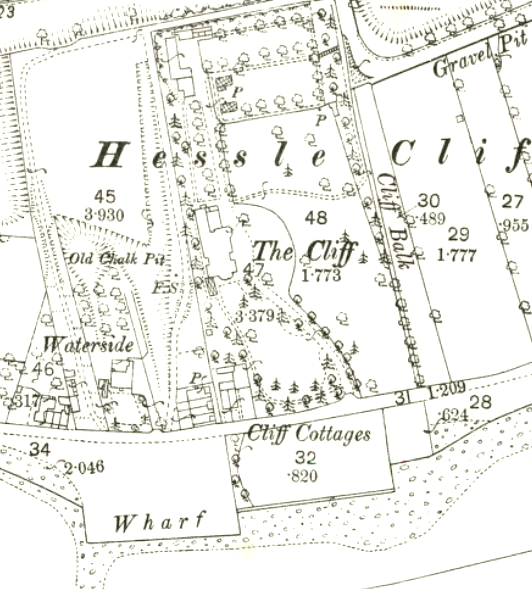
He was still active in the corporation until the time of his death.
This occurred at the Swan Hotel in Harrogate where he was staying in an attempt to recuperate from a short illness.
Funeral
His funeral cortege of a gothic hearse and 3 mourning coaches left Cliff House, Hessle. It continued down Anlaby Road and into Elm Tree Ave (Park Street). The cortege travelled along Spring Bank where it was met by a large number of private carriages. These belonged to Corporation dignitaries (including the mayor) and also a great number of merchants and tradesmen. The funeral took place in Hull General Cemetery.
Monument
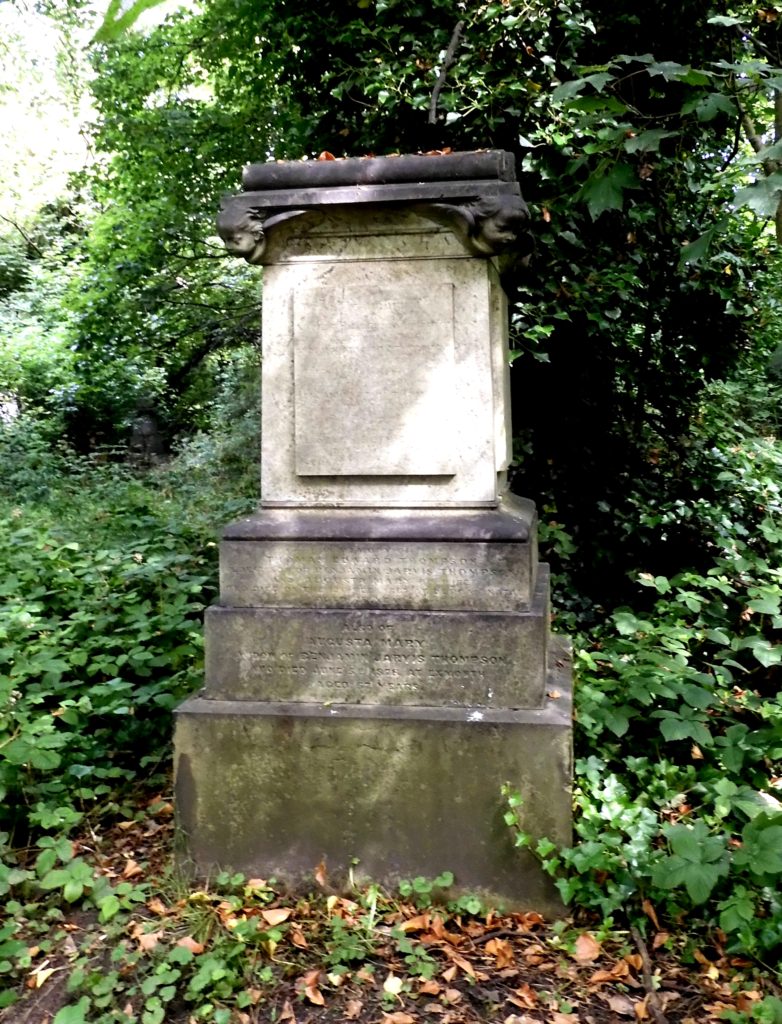
Thomas Thompson’s monument still survives in Hull General Cemetery.
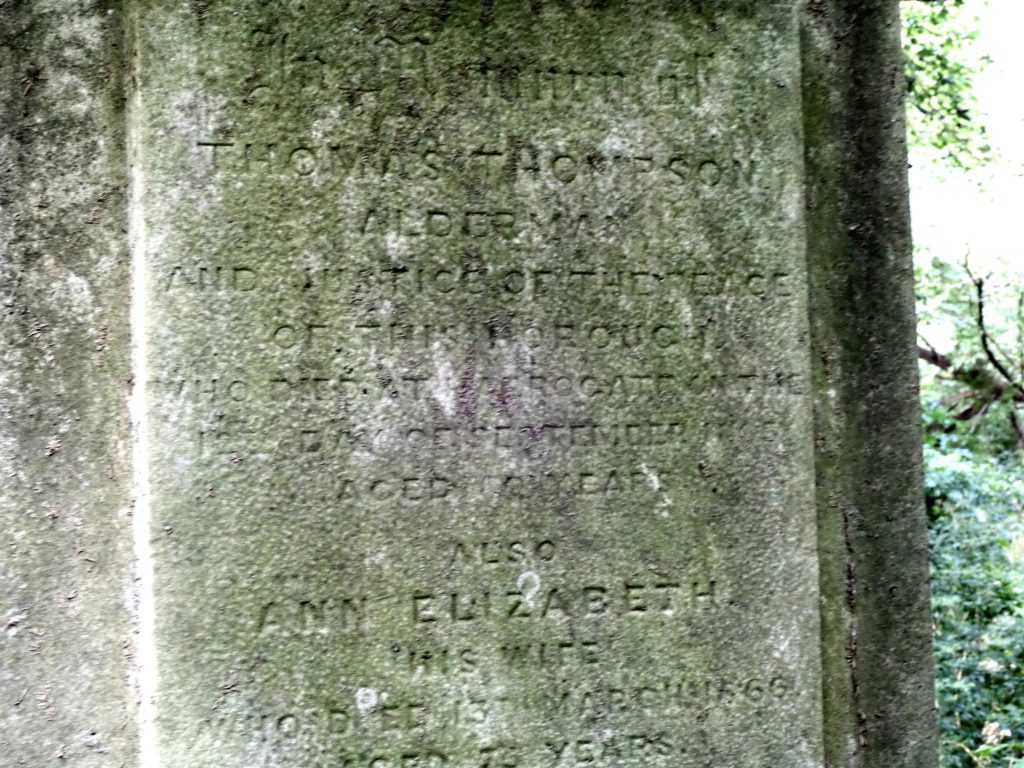

Bill Longbone has had a long relationship with the Hull General Cemetery. He is an active member of the FOHGC and manages the work of the volunteers on the site. His biographical sketches of some of the people buried in the cemetery are one of the highpoints of the success of the Facebook site.

